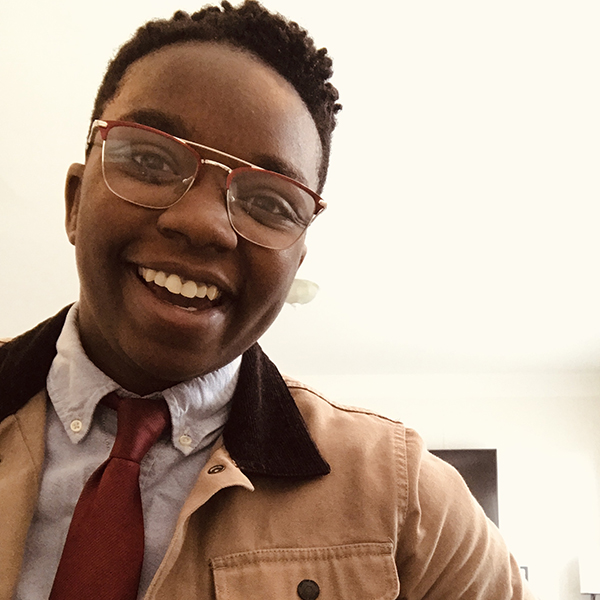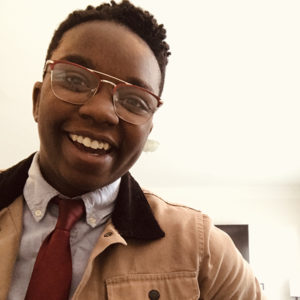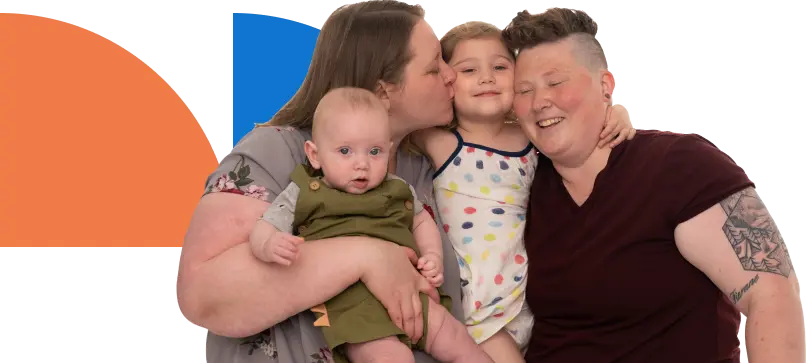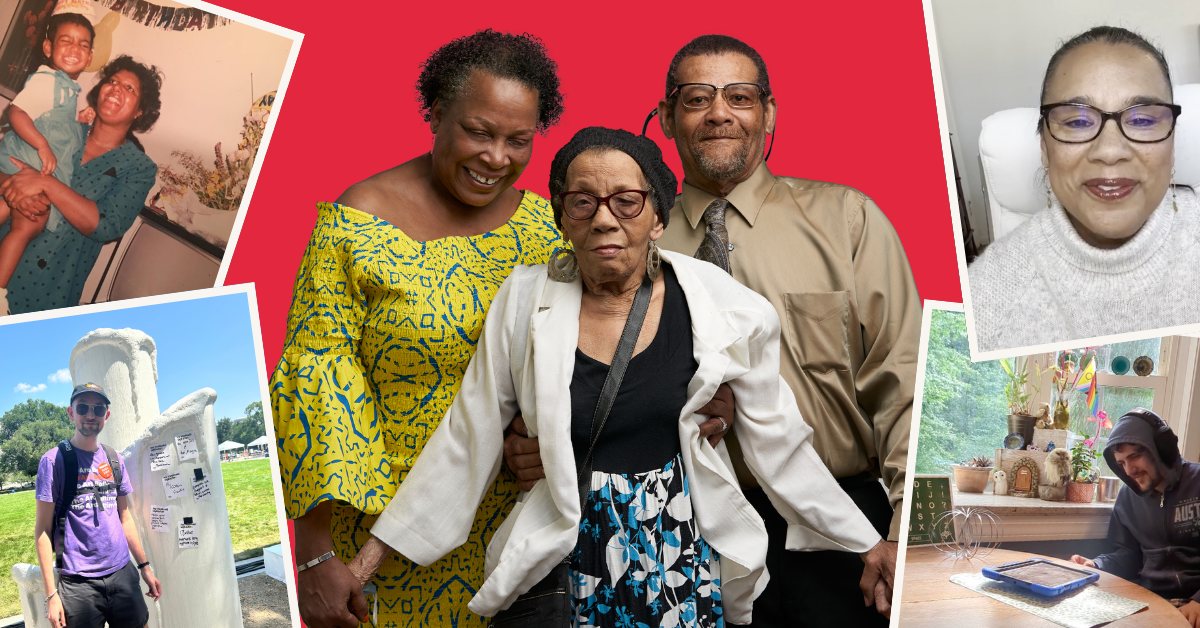
Meet Shanté, our Director of Campaigns. Shanté joined Caring Across last June, and she’s done so much great work guiding our campaigns team and state partners in forging new partnerships and mobilizing people on the ground around care. Read on to find out what she’s most excited to be working on, how her mom inspires her, and what being a southerner means to her.
What drew you to Caring Across, and what does our work mean to you?
What drew me to Caring Across was the organization’s commitment to people that you see every day, but who aren’t represented in wider conversations. As the quote goes, we don’t live single issue lives. A lot of women around and in my family were caregivers. So when I saw that Caring Across had a mission to do state based work around care policy, I wanted to help.
When I read Ai-jen’s book, her theory of care reminded me of my mom’s theory around why she takes care of kids. My mom fostered a lot of children, and I’m an adoptee – once a foster kid of hers – so that’s something I carry with me and was brought up with.
Our work at Caring Across is so important because it’s all about what I like to call, “The utilities of life”: paid leave, access to childcare, and care for our elders and people with disabilities. All of those things are complementary, yet necessary. We might not think about them, but we should: for example, I might not be thinking about childcare if I’m not interested in having kids anytime soon, but it’s important to pay attention because it may fall into our lives at one point or another. And these issues show up, no matter who or where you are – that’s why care shouldn’t be seen as partisan. Care infrastructure may be seen as an underdog issue, but it is the backbone of our society. We are nothing without our workers, without our grandmas, without our friends, without our chosen or direct family who help us get through our daily lives.
What is your role, and what have you been most excited to work on/proud that you’ve done so far?
I am our Director of Campaigns, and I direct day-to-day operations on our federal and state based campaign work, and work directly with our state and regional partners.
One federal piece of work that I’m really proud of is the Build Back Better work that we did last year to move the bill through Congress. We built a lot of strong relationships and unique strategic partnerships to move the bill, as well as developing new framing on why the package is so important.
And in 2022, we have been able to leverage our resources to enact state based campaigns. Now of course, these campaigns might look different than we’re imagining, based on what happens with budget reconciliation and whether we can galvanize around those funds or not. But the fact is, sometimes we might have to work backwards in order to reach our long-term goals. The project of our state-based work is to mobilize the people who might not be able to imagine what care infrastructure could look like in their neighborhoods and in their communities. I’m most excited about doing that work on the ground to build that imagination that allows us to do our work.
What kind of work have you done in the past?
I’ve worn a lot of hats and worked across a myriad of movements. I started out in reproductive justice in a humble but strong organization in Alabama, fighting to remove homophobic language in the state constitution. From there, I did a lot of issue based and electoral campaign strategy, including working around an abortion amendment. I then had the honor of serving as deputy campaign manager for Charles Booker’s 2020 cycle.
I’ve worked on LGBT rights, on climate justice as a part of the Sunrise Movement, all within the frame of intersectionality: these issues are connected in more ways than we realize. Our lives reflect each other’s, particularly in rural areas and among working class people. When it comes to race, lower class folks can be Black or white, but we both have terrible insurance rates, we both are struggling to figure out how to pay for caregiving. So what if we led with that in communities and see how far we can go?
I always say, I go where The South needs me. I work nationally and in deep red states, because The South is a reflection of where we are in America all the time. That is why, even though I am a southerner, I’ll never give up.
What is your experience with care, and how did it bring you to do this work?
My experience with care came from watching my mom. She was a well-known foster parent in my hometown and she also cared for my terminally ill aunt in the later stages of her life. She was also a PE teacher for 34 years. My mom was always selfless when it came to caregiving and child care, and it served as a model for how I approach the work here at Caring Across Generations.
What do you like to do outside of work?
What do I like to do, other than go to Target? You can find me at a live music show. I love supporting local artists. I like to go to the park. I love Shu Shop, which is a local ramen place here in Birmingham. You can find me there every week!




